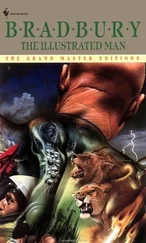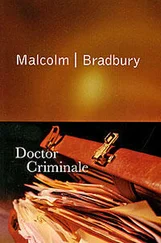Malcolm Bradbury - The History Man
Здесь есть возможность читать онлайн «Malcolm Bradbury - The History Man» весь текст электронной книги совершенно бесплатно (целиком полную версию без сокращений). В некоторых случаях можно слушать аудио, скачать через торрент в формате fb2 и присутствует краткое содержание. Жанр: Современная проза, на английском языке. Описание произведения, (предисловие) а так же отзывы посетителей доступны на портале библиотеки ЛибКат.
- Название:The History Man
- Автор:
- Жанр:
- Год:неизвестен
- ISBN:нет данных
- Рейтинг книги:3 / 5. Голосов: 1
-
Избранное:Добавить в избранное
- Отзывы:
-
Ваша оценка:
- 60
- 1
- 2
- 3
- 4
- 5
The History Man: краткое содержание, описание и аннотация
Предлагаем к чтению аннотацию, описание, краткое содержание или предисловие (зависит от того, что написал сам автор книги «The History Man»). Если вы не нашли необходимую информацию о книге — напишите в комментариях, мы постараемся отыскать её.
The History Man — читать онлайн бесплатно полную книгу (весь текст) целиком
Ниже представлен текст книги, разбитый по страницам. Система сохранения места последней прочитанной страницы, позволяет с удобством читать онлайн бесплатно книгу «The History Man», без необходимости каждый раз заново искать на чём Вы остановились. Поставьте закладку, и сможете в любой момент перейти на страницу, на которой закончили чтение.
Интервал:
Закладка:
'I gathered you'd been researching in the sexual field,' says Miss Callendar, 'you're still working at it, are you?'
'Oh, that's all finished and published,' says Howard, 'no, this would be purely for pleasure.'
'Oh, pleasure,' says Miss Callendar, 'but what would be the pleasure? My own lovely self, of course. That goes without saying. But I'm sure you have grander motives.'
'I like you physically,' says Howard, 'and you're a serious challenge. You haven't been made over.'
'Oh, I see,' says Miss Callendar. 'You're a provocation,' says Howard. 'I'm sorry,' says Miss Callendar, 'were you being provoked last night?'
'Last night,' says Howard. 'When I left the party,' says Miss Callendar. 'Oh, that was part of my tutorial duties,' says Howard. 'One has many obligations.'
'But I'm not an obligation, I'm a pleasure.'
'That's right,' says Howard, 'come out to dinner with me.'
'Dinner,' says Miss Callendar. 'We ought to get to know each other,' says Howard. They are passing, one on either side of the drive, two of the Kaakinen residences, Toynbee and Spengler; from them, in the pouring rain, comes a bedraggled procession of students, carrying cases and books, on their way to nine o'clock classes. 'Why, Dr Kirk,' says Miss Callendar, 'I don't think it would do.'
'Why not?' asks Howard. 'You go out to dinner and eat scampi and seduce nineteenth-century liberals,' says Miss Callendar, 'and meanwhile your wife sits at home and sews. Do you honestly think this is right?'
'My wife can't sew,' says Howard, 'and she goes her own way. She has wicked weekends in London.'
'And you sit home and sew?' says Miss Callendar. 'No,' says Howard, 'we get little time for sewing.'
'I can imagine,' says Miss Callendar, 'well, it's very kind of you to invite me, but I really don't think I can accept.' A sign says P, and points: Howard turns the van towards the car park. Now the main buildings of the university are in sight, up and down, high and low, glass and cement. 'Why not?' asks Howard, 'Am I too old? Too fast? Too married?'
'I don't think I belong in your company,' says Miss Callendar, sitting beside him, holding her umbrella. 'Mightn't it do you good?' asks Howard. 'It's the good I'm suspicious of,' says Miss Callendar, 'I think I know what your interest is in me. I think you regard me as a small, unmodernized, country property, ripe for development to fit contemporary tastes. You want to claim me for that, splendid historical transcendence in which you feel you stand.'
'That's right,' says Howard, 'you're repressed, you're uptight, you haven't begun to reveal yourself yet. I want to reveal you.' In the car park, a student in a Rover 2000 backs out of one of the spaces; Howard drives neatly into the vacated space. 'Don't think I don't appreciate it,' says Miss Callendar, 'some people would just want to lay you and forget it. You provide redemption as well, a full course in reality. But I do have an idea of reality already. Only it's not quite the same as yours.'
Howard stops the engine; he turns to face Miss Callendar. She is sitting, looking forward towards a row of concrete bollards, with a very cool look on her face, her hands still around the handle of the umbrella. He puts his hand on top of her hands. He says, 'Tomorrow night, yes?'
'Tomorrow night, no,' says Miss Callendar. 'I'm sorry,' says Howard, 'I'm really after you. You know what Blake says.'
'Yes,' says Miss Callendar, 'I know very well what Blake says.'
'"Better murder an infant in its cradle than to nurse unacted desires,"' says Howard. 'Of course you would say that,' says Miss Callendar, 'actually what he said was that it was better to nurse unacted desires than murder an infant in its cradle.'
'I think I have it right,' says Howard. 'It's my field,' says Miss Callendar, opening the car door. 'Many thanks for the lift. It saved me seven new pence.'
'I'm delighted to have supported your economy,' says Howard, 'what about my invitation?'
'Maybe one day,' says Miss Callendar, angling herself out of the car and rising up beside it to her full height, 'when I'm hungry.' Standing in the wet lake of the car park, she erects her maroon umbrella. Then, as Howard watches, she pushes it up in the air and walks off across the lake, her briefcase swinging beside her knee, towards the Humanities Building. Howard gets out of the van too, locks it, and, with his briefcase, walks off in the other direction, towards Social Sciences. He walks past posters advertising theatrical productions, the forthcoming visit of many Maharishis, some new anti-Vietnam demonstrations, lectures on picketing, drugs, and the development of Byzantine art; he walks under cranes and welders; he crosses the Piazza. A large figure under a transparent domed umbrella is crossing the Piazza from the other direction; it is Flora Beniform, swinging her briefcase, wearing a big black fur-collared coat. They meet just under the portico of the Social Sciences Building, outside the glass doors; they stop and smile at each other.
'Hello, Howard,' says Flora, 'how's Barbara?'
'I can't tell whether she loves me or she hates me,' says Howard. 'Of course you can't,' says Flora, shaking out her umbrella, 'she can't either.' Howard pushes open the glass door to let Flora go through. 'Thank you,' she says, 'you look tired, Howard.' Howard takes off his wet cap and shakes it. 'You missed a good party last night,' he says. 'Oh, no,' says Flora, 'that's where you're wrong. The guests were present. It was the hosts who were absent.'
'You came?' asks Howard. 'I did,' says Flora, 'and then I went.'
'I wanted to see you,' says Howard. 'I'm sure you did,' says Flora, 'but in default you saw someone else. It was perfectly sensible of you.'
'You must have come late,' says Howard. 'I did,' says Flora, 'I went up to London first to catch a seminar at the Tavistock Clinic.'
'I hope,' says Howard, as they walk across the foyer, 'it was worth missing me for?'
'Yes, it was,' says Flora, 'the paper had a very narrow concept of normative behaviour and they all seem very clitorally centred these days. But the question period was very challenging and provocative.'
'You mean you were,' says Howard. 'I did say some interesting things,' says Flora, 'did anyone say anything very interesting at your party?'
'Flora,' says Howard, 'you're a scholar and a gentleman. No, they didn't. But interesting things were done, though.' They reach the lift in the centre of the foyer, and stop and wait there, surrounded by a large crowd of waiting students. Flora turns to Howard. 'I know,' she says, 'they were doing them when I got there.'
'Did I miss the best of it?' asks Howard. 'I think you did, Howard,' says Flora, 'I must say I feel very suspicious about a sociologist who is absent from the tensions of his own party.' The lift doors open in front of them; Howard follows Flora, in her fur-collared coat and her big leather boots, for Flora is always well and strikingly dressed, inside. A faint smell of perfume comes off her; her body is big against Howard's. 'What happened?' asks Howard. 'Don't you know, don't you really?' asks Flora. 'I heard something about a misfortune occurring to Henry Beamish,' says Howard.
'Yes, indeed,' says Flora. 'What happened?' asks Howard, 'Were you there?'
'Of course I was,' says Flora, 'I'm always there.'
'Tell me about it.'
'I think not here, I'll come to your study, if you've time.'
'I have,' says Howard. 'By the way, this new man Macintosh was telling me last night there's a rumour that Mangel is coming here to speak.'
'Now isn't that funny?' says Flora. 'I met Mangel at the Tavvy last night. And he obviously knew nothing about it at all. Macintosh did mention it at your party, actually. He said the rumour came from you.'
'Word of mouth is a curious system,' says Howard. 'I'm sure you're trying to be interesting,' says Flora, 'is this us?'
Читать дальшеИнтервал:
Закладка:
Похожие книги на «The History Man»
Представляем Вашему вниманию похожие книги на «The History Man» списком для выбора. Мы отобрали схожую по названию и смыслу литературу в надежде предоставить читателям больше вариантов отыскать новые, интересные, ещё непрочитанные произведения.
Обсуждение, отзывы о книге «The History Man» и просто собственные мнения читателей. Оставьте ваши комментарии, напишите, что Вы думаете о произведении, его смысле или главных героях. Укажите что конкретно понравилось, а что нет, и почему Вы так считаете.











